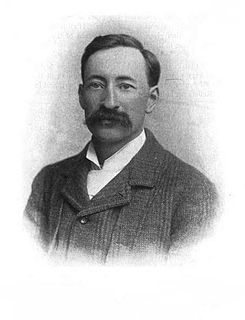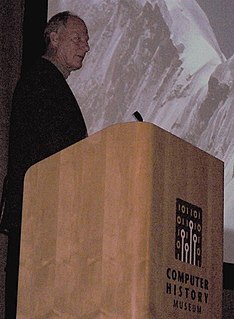A Quote by Jean de la Bruyere
Nothing is easier for passion than to overcome reason, but the greatest triumph is to conquer a man's own interests.
Related Quotes
Greater in battle
than the man who would conquer
a thousand-thousand men,
is he who would conquer
just one —
himself.
Better to conquer yourself
than others.
When you've trained yourself,
living in constant self-control,
neither a deva nor gandhabba,
nor a Mara banded with Brahmas,
could turn that triumph
back into defeat.
It is easier for an artful Man, who is not in Love, to persuade his Mistress he has a Passion for her, and to succeed in his Pursuits, than for one who loves with the greatest Violence. True Love hath ten thousand Griefs, Impatiencies and Resentments, that render a Man unamiable in the Eyes of the Person whose Affection he sollicits.
Men are tied up to their families and possessions more helplessly than in a prison. There is an occasion for the prisoner to be released, but householders entertain no desire to be relieved from the ties of family. When a man's passion is aroused nothing prevents him from ruining himself. Even into the jaws of a tiger will he jump. Those who are thus drowned in the filth of passion are called the ignorant. Those who are able to overcome it are saintly Arhats.
Now that science has helped us to overcome the awe of the unknown in nature, we are the slaves of social pressures of our own making. When called upon to act independently, we cry for patterns, systems, and authorities. If by enlightenment and intellectual progress we mean the freeing of man from superstitious belief in evil forces, in demons and fairies, in blind fate--in short, the emancipation from fear--then denunciation of what is currently called reason is the greatest service reason can render.
No passion is stronger in the breast of man than the desire to make others believe as he believes. Nothing so cuts at the root of his happiness and fills him with rage as the sense that another rates low what he prizes high. Whigs and Tories, Liberal party and Labour party - for what do they battle except their own prestige? It is not love of truth but desire to prevail that sets quarter against quarter and makes subserviency rather than the triumph of truth and the exaltation of virtue - but these moralities belong, and should be left to the historian, since they are as dull as ditch water.
The Middle Ages were an era of mysticism, ruled by blind faith and blind obedience to the dogma that faith is superior to reason. The Renaissance was specifically the rebirth of reason, the liberation of man's mind, the triumph of rationality over mysticism - a faltering, incomplete, but impassioned triumph that led to the birth of science, of individualism, of freedom.








































